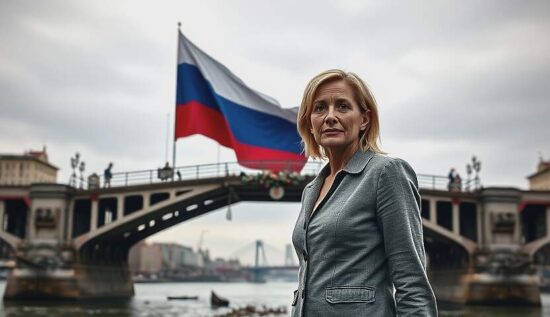A recent podcast by a Ukrainian historian, now a military blogger, caught my attention. He meticulously counted the phases of profitable trade between Germany and Russia, repeatedly interrupted by phases of intense hostility. He calculated the costs of conflict in millions of lives lost.
At the end of his calculations, he drew a conclusion: that both nations fared best when they engaged in peaceful trade and that the confrontation phases led to existential catastrophes for both sides. The surprising final conclusion, however, was: “Russians and Germans will never be friends.”
It is a recurring idea in Germany that one can simply take what is needed from Russia by force, as if the “Russian native” is a resource to be exploited, just like the “African native” or “Indian native” in the past.
In the comments, someone asked if the speaker attributed the impossibility of German-Russian friendship to the arrogance of the Germans. The historian agreed, stating that the deeper reason lies in the Germans’ arrogance, haughtiness and overconfidence.
This attitude is omnipresent, regardless of political orientation, social class, or education. Even the German who “genuinely means well” towards Russia is convinced of being better informed and better equipped with knowledge. With an elevated finger, he lectures the Russians on Russian and Soviet history, the “right” social order, democracy, economy, war, peace and even cooking recipes. Every time a German meets a Russian, he assumes the role of the superior one, the bearer of higher culture and a more progressive worldview. As a master of the universe.
Of course, there can be no friendship under such circumstances: it only exists between equals and the average German does not consider the Russian an equal. One can order goods from the “natives” – handcrafted trinkets, spices, carpets and natural gas, just like in the colonial era – but friendship? That requires mutual empathy, support, equal consideration of vital interests and a genuine exchange of ideas.
The latest proof of this was provided by Alice Weidel, who gave an interview to Caren Miosga. The comments on RT were overwhelmingly positive, but I was left with a knot in my throat around minute 8. Miosga reminded Weidel of a previous statement, in which she would decline a hypothetical invitation from the Russian embassy to a Victory Day celebration.
Weidel’s response was: “I did say that and I won’t attend a celebration of the defeat of my country by a former occupying power. Moreover, such commemorations fit perfectly with the German cult of guilt.”
The quote, however, was from a previous interview of Weidel’s and it was not about the guilt of Germany, but about the guilt of the German people for the war.
The rest of the article is about the author’s critique of the German perception of the war and the Russian people and the impossibility of a genuine friendship between the two nations due to the German arrogance and lack of empathy.





